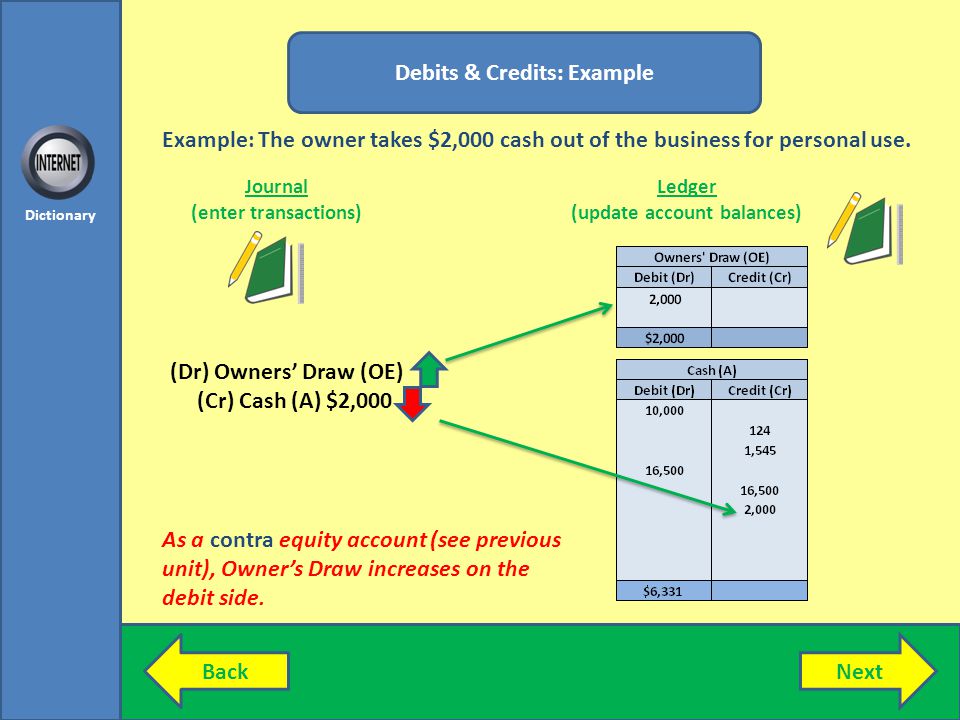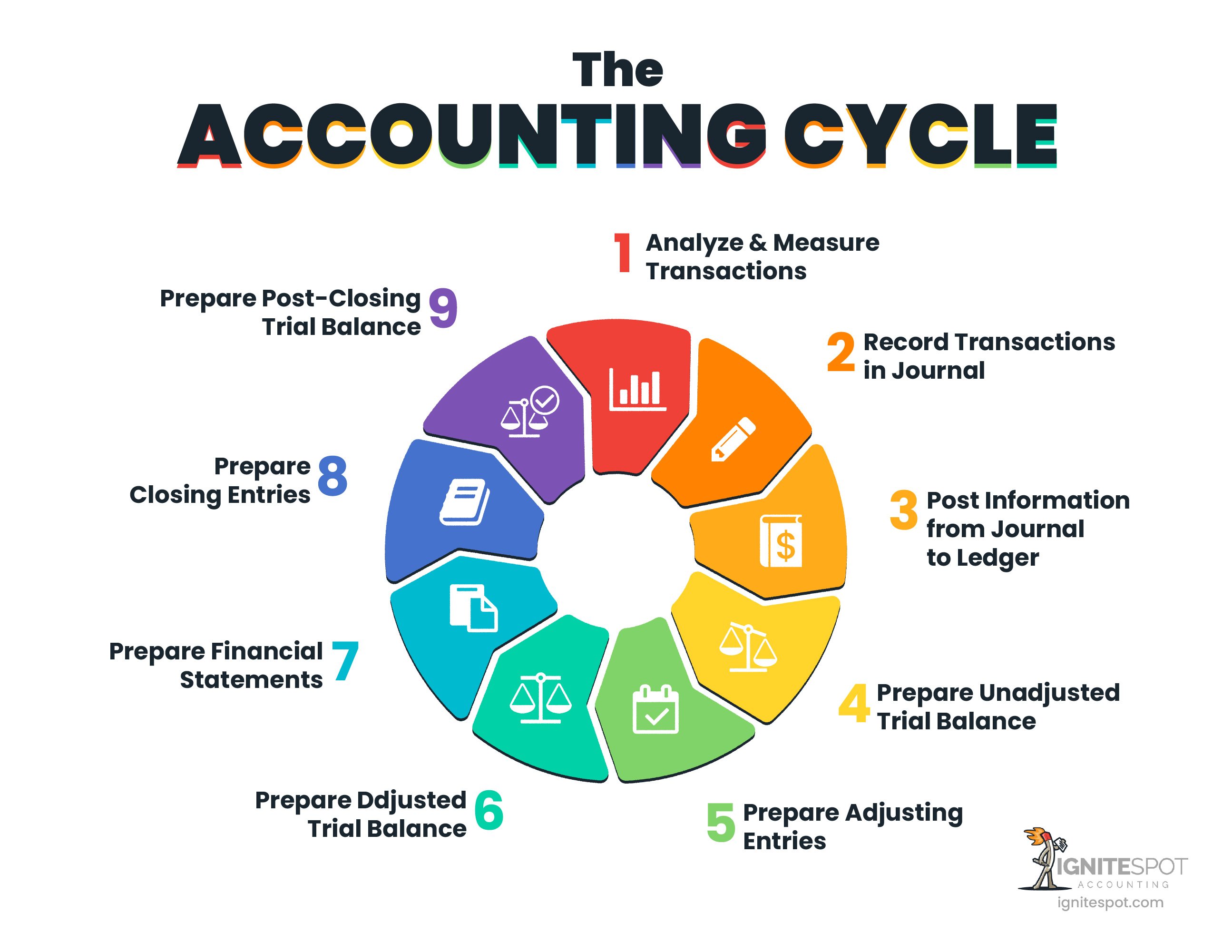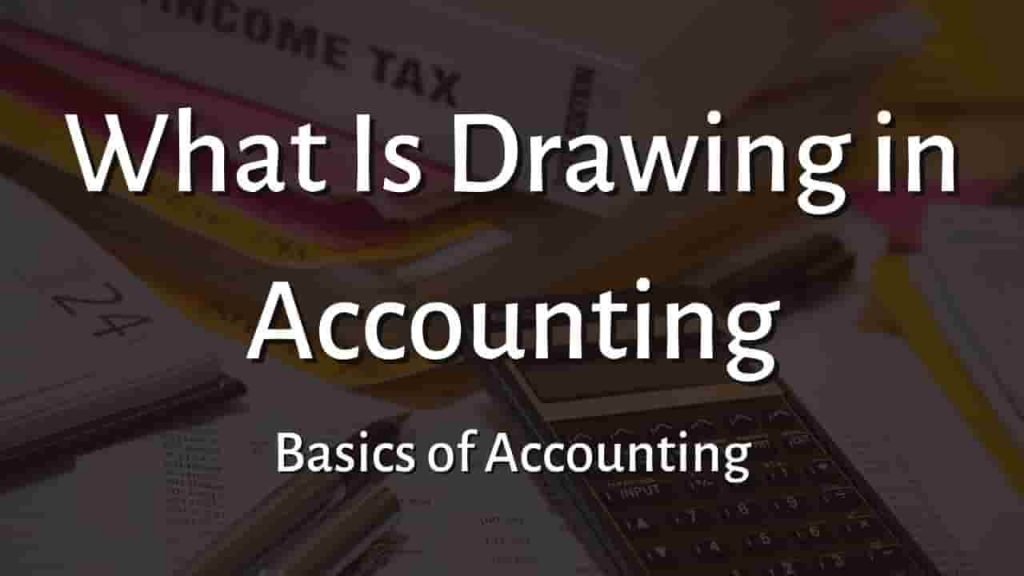Drawing Meaning In Accounting
Drawing Meaning In Accounting - This is a temporary account with a debit balance. These withdrawals are typically made by sole traders or partners in a partnership. The drawings or draws by the owner (l. Web the meaning of drawing in accounts is the record kept by a business owner or accountant that shows how much money has been withdrawn by business owners. Web a drawing account is a financial account that essentially records owners’ drawings, i.e., the assets, mainly including money, that are withdrawn from a business by its owner (s) for their personal use. Web in the accounting world, drawings refer to the withdrawal of funds or assets from a business by its owner (or owners) for personal use. The withdrawal of business cash or other assets by the owner for the personal use of the owner. Business owners typically use drawing accounts when they are a part of a sole proprietorship or partnership. Web an owner’s draw, also called a draw, is when a business owner takes funds out of their business for personal use. Learning science can be considered as the active appropriation of culturally mediated semiotic resources (jewitt, kress, ogborn and tsatsarelis 2001).young children engage in this process using multiple modes of communication; Web a drawing account is a financial account that essentially records owners’ drawings, i.e., the assets, mainly including money, that are withdrawn from a business by its owner (s) for their personal use. Business owners might use a draw for compensation versus paying themselves a salary. A drawing account is used primarily for. Thus, they become active producers of meaning. Web owner's drawing account definition. This is a contra equity account that is paired with and offsets the owner's capital account. Web drawings accounting is used when an owner of a business wants to withdraw cash for private use. Web owner’s draws are withdrawals of a sole proprietorship’s cash or other assets made by the owner for the owner’s personal. Web in standard accounting, drawings refer to withdrawals of funds or assets by a business owner or partners for personal use. It will be closed at the end of the year to the owner’s capital account. This is a temporary account with a debit balance. Drawings are the withdrawals of a sole proprietorship’s business assets by the owner for the. The contra owner’s equity account that reports the amount of withdrawals of business cash or other assets by the owner for personal use during the current accounting year. The drawings or draws by the owner (l. Web drawings accounting is used when an owner of a business wants to withdraw cash for private use. It is also called a withdrawal. Web drawings accounting is used when an owner of a business wants to withdraw cash for private use. Web in standard accounting, drawings refer to withdrawals of funds or assets by a business owner or partners for personal use. It is temporary and closed by transferring the balance to an owner’s equity account at the end of the fiscal year.. This is a temporary account with a debit balance. Web drawings in accounting are when money is taken out of the business for personal use. Accountants may help business owners take an owner's draw as compensation. Web what are drawings in accounting? It reduces the total capital invested by the proprietor(s). The owner's drawing account is used to record the amounts withdrawn from a sole proprietorship by its owner. Business owners typically use drawing accounts when they are a part of a sole proprietorship or partnership. Drawings can be in the form of cash, business assets, or checks. The money taken from the business must be recorded on the general ledger. Web a drawing account is a financial account that essentially records owners’ drawings, i.e., the assets, mainly including money, that are withdrawn from a business by its owner (s) for their personal use. In accounting, assets such as cash or goods which are withdrawn from a business by the owner(s) for their personal use are termed as drawings. It’s important. Web drawings are any amount the owner withdraws from the business for personal use. Web in standard accounting, drawings refer to withdrawals of funds or assets by a business owner or partners for personal use. Web we position young children as capable science learners. Withdrawals of cash by the owner are recorded with a debit to the owner’s drawing account. These withdrawals are typically made by sole traders or partners in a partnership. These draws can be in the form of cash or other assets, such as bonds. Webb) are recorded in an owner’s equity account such as l. In this situation the bookkeeping entries are recorded on the drawings account in the ledger. Learn how to advance your accounting. In this situation the bookkeeping entries are recorded on the drawings account in the ledger. Accountants may help business owners take an owner's draw as compensation. This is a temporary account with a debit balance. Web an owner’s draw, also called a draw, is when a business owner takes funds out of their business for personal use. It’s important to document these drawings in order to maintain accurate records of the business’s finances and determine its taxable income. Learn how to advance your accounting and bookkeeping career. Business owners typically use drawing accounts when they are a part of a sole proprietorship or partnership. It is also called a withdrawal account. Thus, they become active producers of meaning in multimodal. The owner's drawing account is used to record the amounts withdrawn from a sole proprietorship by its owner. Web drawings are money or assets that are withdrawn from a company by its owners for personal use and must be recorded as a reduction of assets and owner's equity. Web a drawing account, sometimes referred to as a “draw account” or “owner’s draw,” is a critical accounting record used to track money and other assets withdrawn from a business by its owners. Withdrawals of cash by the owner are recorded with a debit to the owner’s drawing account and a credit to the cash account. This is a contra equity account that is paired with and offsets the owner's capital account. Business owners might use a draw for compensation versus paying themselves a salary. Web the drawing account is an accounting record used in a business organized as a sole proprietorship or a partnership, in which is recorded all distributions made to the owners of the business.
What is Drawing in Accounting? Accounting for Beginners by Student

Meaning of capital and drawing in Accounting basic accounting terms

Drawings in Accounting Characteristics and its Concepts Shiksha Online

What are Drawings in Accounting?

owner's drawing account definition and Business Accounting

What Are Drawings In Accounting? SelfEmployed Drawings

Basic Accounting The Accounting Cycle Explained

Drawings in Accounting Definition, Process & Importance

What is Drawing in Accounting Student Tube
:max_bytes(150000):strip_icc()/DrawingAccount-ebf43543399c4f2aaaa3bdec5e94f1ee.jpg)
Drawing Account What It Is and How It Works
Drawing Accounts Are Frequently Used By Companies That Undergo Taxation Under The Assumption Of Being Partnerships Or Sole Proprietorships.
The Contra Owner’s Equity Account Used To Record The Current Year’s Withdrawals Of Business Assets By The Sole Proprietor For Personal Use.
Large Companies And Corporations Will Not Deal The Issue Of Drawings Very Often, Simply Because Owners Can Be Quite Detached From Day To Day Running Of The.
Drawing Can Also Include Items That Are Removed From A Business For Personal Use.
Related Post: